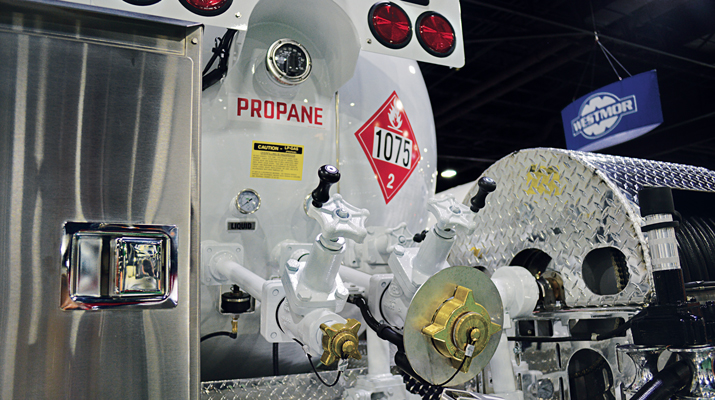MLP benefits you should understand
Why is it that the large, multi-state propane retail companies are organized as master limited partnerships, rather than the more commonly used corporation structure? Do they have some business or legal insight that you and the other propane marketers don’t know?
While the MLP is not a viable option for most propane marketers, there is sound reason for all propane retailers to understand its merits. You may be asked to accept ownership interests – called “units” rather than “shares” or “stock” – in an MLP in exchange for all or part of your ownership in a propane business. You also may be thinking about investing in a publicly traded propane MLP.
Like too many other aspects of our economic lives, the federal tax laws are the reason that propane MLPs were born in the 1990s. Without drilling down into too much tax detail (please talk to your tax advisor for complete details), the MLP is used because the tax laws permit certain energy-related, publicly owned entities to be taxed as a partnership rather than as a corporation. As illogical as it sounds, publicly held partnerships are generally taxed as corporations.
Unlike a corporation, a partnership is a “flow-through” tax entity, which means all tax attributes of its income and expenses pass on to its partners. The partners receive the tax benefit from non-cash deductible expenses, such as depreciation on tanks. As a result, 70 to 100 percent of the cash distributed to the partners of an MLP is not taxed.
So, if you buy ownership units in a MLP and your annual return is 7 to 10 percent (most propane MLPs are in this range), then the yield compared to taxable dividends from a corporation is actually 14 to 20 percent, assuming you are in a 50 percent tax bracket. In other words, the dividend from the standard corporation would need to be 14 to 20 percent to match the typical after-tax propane MLP distribution.
Because of these benefits, investors are attracted to publicly traded propane MLP’s for their steady cash flow and growth.
The structure of the typical MLP is complex, but let’s look at some of the basics.
First, an MLP is a limited partnership for state law purposes. By law, different levels of liability apply to the limited partners (everyone but the general partners, who manage the business).
To maintain the same limited liability enjoyed by stockholders, you can’t be active in the management of the company. Thus, even with less than 51 percent ownership of the company, the general partner still controls the MLP.
Here’s the key about exchanging MLP ownership for part or all of your company: Accepting MLP ownership allows you, the seller of a smaller propane company, to realize the potential of higher cash-flow multiples of a larger propane operation.
You may receive MLP units for your business even before the MLP has had its first public offering. During the first few years of operations after the public trading begins, there are generally several levels of ownership units. The availability of cash from the MLP depends on the type of unit you own.
In order to enhance the trading price of the units offered to the public, which will ultimately enhance the value of your units, you may be asked to accept “subordinated units.” Individuals who sell their propane companies to the MLP typically hold subordinated units, as do the organizers and other company insiders.
Subordinated units receive their minimum quarterly distribution only after distribution is made for the publicly sold units (called “common units”). In other words, your risk of not receiving distributions is greater than the risk held by the common unit owners if the company’s cash flow is insufficient to cover both.
For that reason, provisions for the automatic conversion of your MLP units should be an important part of your company’s sale agreement.
MLPs have complicated ownership and profit sharing structures and I urge you to consult with legal advisors experienced with MLPs before you accept ownership in such an entity.
















